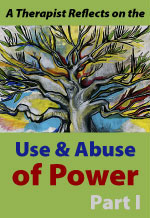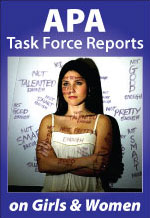Maryland Social Workers are required to renew their licenses every 2 years, on October 31st. 40 hours of continuing education are required to renew. 20 hours must be earned in Category 1 (live courses), including 3 hours in professional ethics. The remaining 20 hours may be earned through online courses offered by ASWB-approved providers (Category 2).
Professional Development Resources is approved as a provider of continuing education for social workers by the Association of Social Work Boards (ASWB Provider #1046, ACE Program). Over 100 online and home study courses are available for Maryland Social Workers @ http://www.pdresources.org/Courses/Social-Work/AllCourses/CourseID/1/
Continuing Education Requirements for Maryland-Licensed Social Workers
The current continuing education requirement is 40 credit hours (30 for LSWA’s) of continuing education in programs and categories approved by the Board for each two-year period of licensure.
Category I credit can only be given by Board Authorized Sponsors. An organization can be a Board Authorized Sponsor by meeting the requirements for automatically authorized sponsorship. If an organization does not fall into the automatically authorized group, then they must complete an approval process through the Maryland Board of Social Work Examiners. In addition, the Board recognizes and accepts the continuing education approval process conducted by the Association of Social Work Boards , the National Association of Social Workers and the Clinical Social Work Federation.
Home Study Programs
A licensee can earn up to 20 (15 for LSWA’s) Category II continuing education credit hours from home study programs. The home study program must be provided by a Board approved Category I sponsor or by an automatically eligible sponsor.
Ethics Requirement
Effective November 1, 2003 all licensed social workers are required to obtain three (3) Category I continuing education credit hours, every two years, in the content area focusing on ethics and professional conduct, including boundary issues. The program must be given by a Board Approved Sponsor.
The content area must be related to social work ethics and professional conduct which may include maintaining appropriate boundaries with clients and a review of the social work statute and Code of Ethics as it relates to conduct which is consistent with generally accepted professional standards. In addition, the content of the program may address issues related to avoiding dual relationships and the acceptance of gifts.
Since many mental health professionals require their licensees to take similar ethics programs, you may be receiving notices of programs offered by their national professional associations who are approved by the Board to provide Category I continuing education credit hours. It would be appropriate to participate in their programs.
Category I Activities
Live real-time transactions between teachers and learners (may include face to face and interactive technology).
Courses, seminars, workshops, symposiums, conferences, staff development, case conferences, grand rounds and attendance or presentation of programs offered at professional or scientific meetings
- At least 20 (15 for LSWA’s) of the required credit hours must be earned in this category.
- All 40 (30 for LSWA’s) credit hours may be earned in this category.
- At least 3 credit hours must be earned in ethics and professional conduct, including boundary issues.
Documentation
An official transcript for academic courses; or a certificate of participation, which is signed and dated by the approved sponsor indicating credit hours earned.
Category II Activities
Programs which are less structured or are not Board-authorized. Workshops, conferences, in-service trainings, structured peer-case conferences, journal clubs, preparation and presentation of a scientific or professional paper at a meeting of a professional or scientific organization; authoring, editing or reviewing a professional publication; preparing and presenting Category I activities. Audio-visual instructional programs and home-study courses provided by a Board approved Category I sponsor.
- Twenty (20) (15 for LSWA’s) of the required 40 credit hours may be earned in this category.
Documentation
A certificate of participation, if available; or if a certificate of participation is not available: the dates when the program was presented; the name(s) of the presenter(s); topics presented; and an outline of the presentation (this could be from your notes). Post-test passing score for audio-visual and home study programs or a certificate of participation if available. Proof of presentation made, reprints of publications, letters from educational institutions when credit is claimed for the instruction of students; dates, times and names of participants in structured peer-case conferences and journal club activities.
Other Items
No credit can be earned for activities related to consultation or the provision of and participation in planned supervisory activities as a supervisor or supervisee.
Social workers shall retain records documenting completion of continuing education requirements for 1 year after the licensing renewal date. The Board conducts a random audit of licenses renewed each year.
Attention !!!
Personal growth courses (e.g. yoga, qi gong, meditation) intended for lay audiences will not be approved for social workers for CEUs. For approval, the audience must be all professionals, the topic theory-based and supported by research, and the technique’s application to social work clients must be shown. The CEU Criteria are listed in a pdf
Maryland Board of Social Work Examiners: http://www.dhmh.md.gov/bswe/index.html










